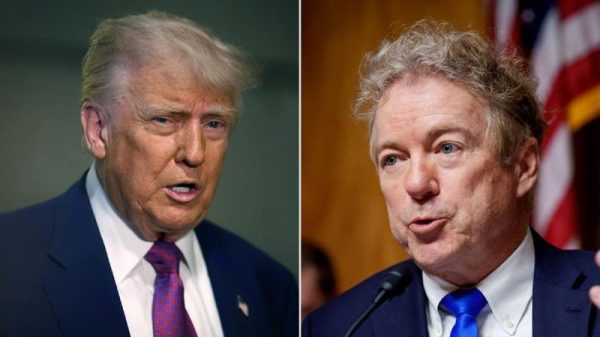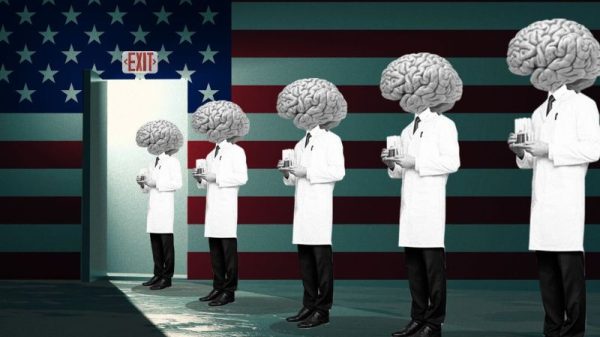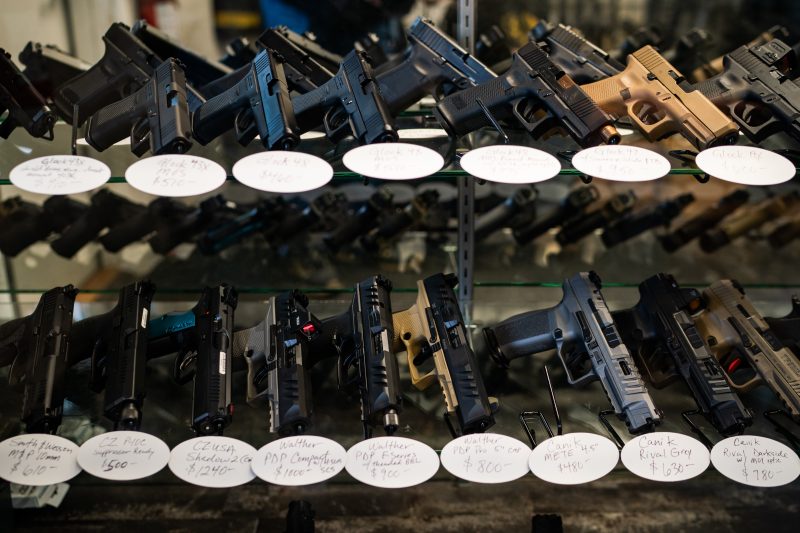In early August, Robert Card went to a gun store in Auburn, Maine, to finalize a purchase he had made online. According to reporting from ABC News, Card was hoping to take possession of a firearm suppressor — known more commonly as a silencer — he had bought, a purchase that necessitated completing the paperwork mandated for such a purchase by federal law.
One of the forms Card filled out included yes/no questions he had to complete. One asked if he was an unlawful drug user. The next asked if he had ever been “adjudicated as a mental defective OR … ever been committed to a mental institution?” Card indicated that he had; over the summer he had spent two weeks in a facility after claiming to hear voices.
Because he checked “yes” instead of “no,” the gun store denied his purchase. When Card last week opened fire with a rifle at two places in Lewiston, Maine, killing 18 people, his weapon was not suppressed; one social media user reported hearing the shots a half-mile away.
The owner of the store that rejected the purchase told ABC News that the lack of a suppressor may have provided more warning to people nearby, potentially lowering the death toll. This gets at one part of the natural question that follows: What would have happened had Card not admitted his hospitalization? Could he have made the purchase?
Applications for firearm purchases (and purchases of suppressors) are processed by the FBI through the National Instant Criminal Background Check System, or NICS. There are a number of categories under which a sale might be denied by the FBI after a check, including having certain categories of criminal convictions or being an unlawful user of controlled substances.
Since the NICS system was implemented 25 years ago, about 2.3 million background checks have been denied by NICS. More than 465 million checks have been conducted.
About half the denials were because of criminal convictions. About 77,000 were denied because the applicant had an “adjudicated mental health” issue. This category of denial was bolstered after the Virginia Tech shooting in 2007, when it was learned that the shooter should have been prevented from buying a firearm because of his mental health status, but information about that prohibition wasn’t available to the FBI.
In the past seven years, there have been about 50,000 denials for “adjudicated mental health.” (The FBI publishes this data regularly, but archives of the cumulative figures are patchy.) In recent years, the rate of denials that occur each day has been higher. Over the past 12 months, an average of 21 people a day see an application denied for mental-health-related reasons.
It’s not clear, though, whether Card’s mental health status would have been logged in the systems the FBI uses to issue such a denial.
The government has a specific definition of both “adjudicated as a mental defective” and “committed to a mental institution.” The former requires a formal designation that, because of “marked subnormal intelligence, or mental illness, incompetency, condition, or disease,” the person is “a danger to himself or to others” or is unable to manage their own affairs. (This includes determinations that someone is unfit to stand trial for a crime.) The latter includes “formal commitment of a person to a mental institution by a court, board, commission, or other lawful authority,” but not a voluntary admission.
Card may not have met that latter standard.
“Maine does not require the reporting of individuals who have been committed through emergency procedures but who have not yet been granted a hearing,” WMUR reported. “It’s unclear at this time if Card’s stay at the mental health facility was voluntary or court-ordered.”
Card’s hospitalization was reportedly triggered not by state law enforcement but by commanders at Camp Smith, N.Y., just north of New York City. Card, a member of the Army Reserve, was stationed at the base this summer.
FBI data suggests that the Defense Department’s NICS index — that is, its records of people subject to denials — included fewer than 70 people flagged for “adjudicated mental health.” (This data is current as of January.) Nationally, about 7.2 million people are flagged under that category, distributed proportionate to state population. The state with the most people flagged for “adjudicated mental health” is California, the country’s most populous state.
Relative to population, though, the state with the most individuals flagged is Pennsylvania. Nearby states, including West Virginia and New Jersey, also have a high number of entries relative to their populations. The relative number of residents flagged is an average of 60 percent higher in states that voted for Joe Biden in 2020.
Again, though, it’s not clear that Card’s issues — despite his reportedly threatening to target members of his own unit — would have led to his being prohibited from purchasing a firearm under the NICS system. It’s also not clear whether he would have been determined to have been effectively treated for his illness, one of several ways in which past hospitalizations can be rendered unimportant as a reason for rejecting applications.
Card’s inability to purchase the suppressor was apparently only a function of his admitting to being prohibited from making a purchase on the federal form.
There are criminal repercussions for lying on that form. Earlier this year, President Biden’s son Hunter Biden was charged with submitting a form denying his illegal use of drugs during a period when he’d admitted doing so. But had Card’s mental health issues not resulted in his being flagged in databases that would be reviewed through the NICS system, he could presumably have checked “no” on the box, received his suppressor and only faced later repercussions for having offered false information on the form.
There doesn’t exist a bright line between “sufficiently mentally healthy to own a firearm” and “not.” States and the federal government are justifiably wary of restricting individual rights too ambitiously. But the Card situation shows some of the blurriness that exists — and the worst case of failing to limit an individual’s gun ownership.







































